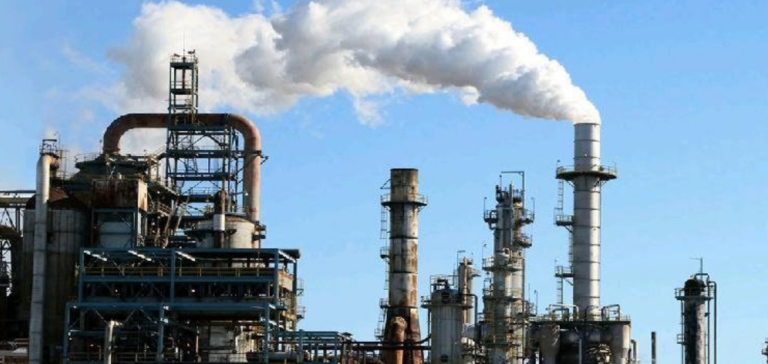According to the latest IEA report published on November 14, global oil refining forecasts for 2023 and 2024 have been revised upwards, anticipating significant increases in production. For 2023, global crude oil processing is expected to increase by 1.9 million barrels per day (b/d), followed by an increase of one million b/d in 2024, reaching an average of 82.6 and 83.6 million b/d respectively.
This upward revision is due in part to unexpected refining activity in September, driven mainly by record performance in China, with 15.7 million b/d, and increased activity in OECD countries. These figures exceed previous estimates, pointing to stronger momentum in the sector.
China’s impact and the emergence of new capacities
China played a major role in this annual growth. However, China’s impact is set to diminish as we move towards 2024. This transition is explained by the increase in refining capacity in other regions, notably with the commissioning of the Duqm refinery in Oman and the Dangote refinery in Nigeria.
Challenges for existing refineries
The Duqm refinery, which began operations earlier in 2023, is already increasing its exports. The first deliveries of crude oil from the Dangote refinery in Nigeria are expected in December, from the national oil company NNPC. The Al-Zour refinery in Kuwait also increased its capacity this year, with the imminent announcement of full commissioning.
Increased capacity in crude oil exporting countries will lead to a reconfiguration of market flows for crude oil and refined products. This presents a challenge for refineries that lack scale, a protected domestic market or are at the upper end of the industry’s cost curve.
Unexpected performance in refining activities
In addition, the IEA expects global refining activity to reach an unprecedented annual peak of 84.2 million b/d in December, after falling to 81 million b/d in October. Refining activity in September, although down on the previous month in OECD countries due to maintenance, was stronger than expected in all three OECD regions: Europe, Asia-Pacific and the Americas.
This better-than-expected performance suggests that maintenance work started later than expected, contributing to a lower estimate for October activity. The extraordinary strength of refining margins probably encouraged refiners to maximize throughputs wherever possible.
Future prospects and geopolitical implications
In Europe, several refineries, including Gelsenkirchen, Holborn and MiRo in Germany, Gothenburg in Sweden, as well as Stanlow and Pembroke in the UK, have carried out work. In China, although refineries recorded record processing levels in September, seasonal maintenance is expected to reduce activity in October and November. In addition, the lack of crude oil import quotas for independent companies should limit activity levels until the end of the year.
In the Middle East, refining activities increased in September and October thanks to the ramp-up of Duqm, offsetting regional maintenance. In Russia, the IEA estimated refining activity at 5.4 million b/d in September, probably due to planned maintenance work. October activity is expected to decline further to 5.2 million b/d, but it is assumed that Russian activity will recover towards the end of the year. Maintenance at Russian refineries, which began in August and peaked in September and October, is gradually winding down in November, with all work scheduled for completion by the end of the month.
The planned increase in global refining capacity in 2023 and 2024, driven by new facilities in China, the Middle East and Africa, represents a significant change in the global energy landscape. While some regions are experiencing expansion, others, such as Russia and Europe, are navigating distinct challenges. These developments suggest a future where market dynamics are increasingly influenced by complex geopolitical and economic factors, offering both opportunities and challenges for the global refining industry.






















